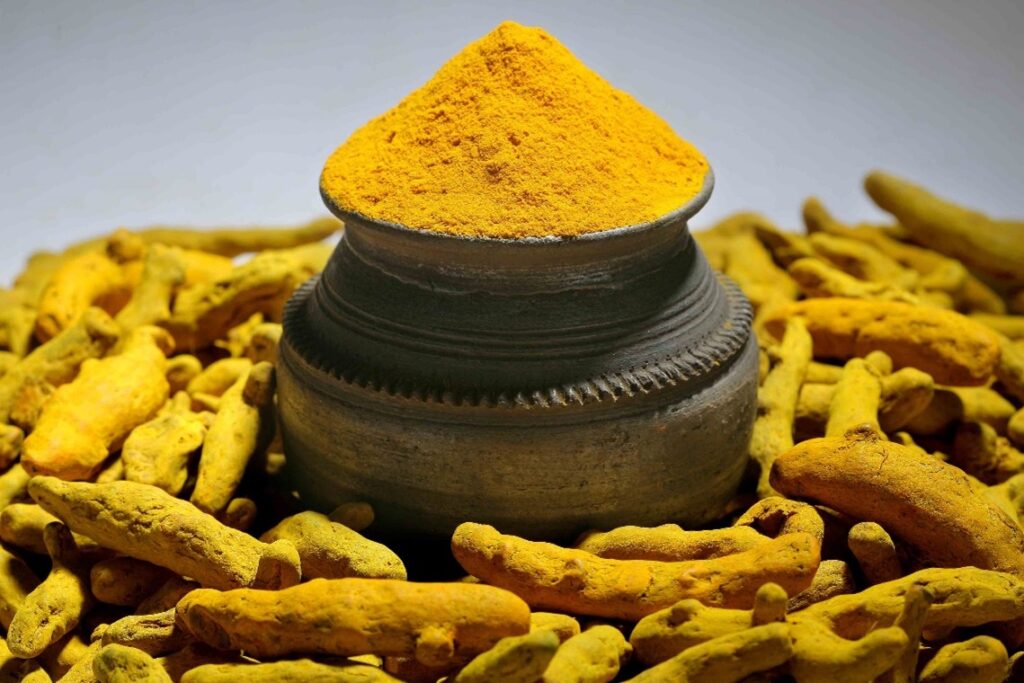What is Ayurveda?
Ayurveda is an ancient natural medical system that has its roots in India and dates back over 3,000 years. Its name derives from the Sanskrit words “ayur” (life) and “veda” (science or knowledge), which together mean “knowledge of life.” Based on the core idea that illness results from imbalances or stress in a person’s consciousness, which causes disharmony in the body, mind, spirit, and surroundings, this ancient healing approach was developed.

History of Ayurveda
The origins of Ayurveda can be found in ancient India’s Vedic era. The Atharva Veda is one of the textual Vedic scriptures that contains the fundamental Ayurvedic concepts and practises. One of the earliest Vedic scriptures, the Rigveda, additionally includes reference of therapeutic procedures. The systematic organisation of the Ayurvedic tradition is credited to two ancient literatures: the Charaka Samhita and the Sushruta Samhita, both written around 600 BCE. These manuscripts provided thorough instructions for identifying and treating a wide range of illnesses and served as the foundation of Ayurvedic treatment.
Ayurveda has developed and grown throughout history, incorporating influences from numerous civilizations and areas. The Gupta Empire (4th to 6th century CE) saw the practise thrive and reach its peak during this time, when numerous new Ayurvedic writings were created.
Ayurveda encountered difficulties during the mediaeval era as a result of raids and foreign influences, yet it was still able to endure and adapt. Ayurveda saw a revival in the modern period when traditional medicine and holistic care regained popularity across the globe. Ayurveda is still a crucial component of modern healthcare in India and is respected as a supplemental and alternative medical system in many other countries. Practitioners and followers looking for natural and balanced ways to improve their well-being continue to be drawn to its holistic approach, which places an emphasis on personalised health and disease treatment.
What are different Ayurvedic herbs or supplements?
Ayurveda offers a wide variety of herbs and nutritional supplements, each with special qualities and health advantages. Since ancient times, these plants have been utilised in Ayurvedic medicine to promote overall health and treat a variety of ailments. Here are some of the most popular Ayurvedic medicines and supplements:
- Ashwagandha(Withania somnifera): Ashwagandha, commonly referred to as Indian ginseng or winter cherry, is one of the most well-liked Ayurvedic herbs and a potent adaptogen. It encourages resilience and energy and aids the body’s ability to adapt to stress. Ashwagandha strengthens the neurological system, lowers anxiety, boosts cognitive function, and promotes sleep. Additionally, it is believed to improve energy levels, the immune system, and the health of the male reproductive system.
- Triphala: Triphala is a blend of three fruits: Amalaki (Indian gooseberry), Bibhitaki (Terminalia bellirica), and Haritaki (Terminalia chebula). This herbal combination works as a gentle and potent digestive tonic, promoting regular bowel motions, good digestion, and intestinal tract cleansing. Triphala also helps the body detoxify and has antioxidant properties.
- Turmeric (Curcuma longa): Curcumin, a strong anti-inflammatory and antioxidant bioactive molecule, is found in turmeric. It is utilised to improve joint health, lessen inflammation, and treat arthritic symptoms. Additionally, turmeric helps liver health, improves digestion, and strengthens the immune system. Its adaptable qualities have made it a well-liked dietary supplement for general wellbeing.

- Brahmi (Bacopa monneri): The Ayurvedic herb brahmi is well known for promoting brain health and cognitive assistance. It improves one’s capacity for learning, focus, and memory. Brahmi is helpful in reducing stress, anxiety, and encouraging relaxation since it has a relaxing effect on the nervous system. Additionally, it also aids in the growth of healthy hair.
- Tulsi (Holy Basil): In Ayurveda, holy basil, also known as tulsi, is revered for its immune-stimulating and adaptogenic qualities. It enhances respiratory health, encourages healthy skin and hair, and aids the body in coping with stress. Due to its many health advantages, tulsi is frequently taken as a supplement or as a herbal tea.

- Amla (Indian gooseberry): Amla is a great source of antioxidants and vitamin C. It is renowned for its anti-aging and revitalising qualities. Amla assists in digestion, boosts the immune system, and encourages good skin and hair. Additionally advantageous are the improvement of the respiratory system and support for heart health.

- Shatavari (Asparagus racemosus): In Ayurveda, shatavari is largely utilised to maintain the health of women. It promotes fertilisation and lactation, reduces menstruation discomfort, and maintains hormone balance. Shatavari is regarded as a soothing herb that also has digestive health benefits.

- Guggul (Commiphora wightii): Guggul is a resin extracted from the Mukul myrrh tree. In Ayurveda, it has been used to support normal cholesterol levels, foster joint health, and lessen inflammation. Guggul has significant anti-inflammatory qualities and is often used in Ayurvedic formulations for joint and bone health.
- Neem (Azadirachta indica): A potent herb with antiviral, antifungal, and antibacterial effects. Neem encourages oral cleanliness, maintains skin health, and aids in detoxifying. It is also utilised to promote the health of the liver and the immune system.
- Licorice (Glycyrrhiza glabra): Licorice is an adaptogenic herb that aids the body in overcoming stress. It improves adrenal health and nourishes the adrenal glands. Licorice is also helpful for promoting digestive health and preserving a healthy respiratory system.
It is crucial to keep in mind that although Ayurvedic medicines and supplements have many health advantages, they should only be used under the supervision of a trained Ayurvedic practitioner or medical professional. Some plants may interact with particular medications or be harmful for specific medical problems. Before adding any new herbs or supplements to your daily regimen, always get the advice of a healthcare professional.
How does Ayurvedic medications function in human body?
Ayurvedic medicines work in the body by using a holistic approach that aims to reestablish harmony and balance between the body, mind, and spirit. According to Ayurveda, the body is an interconnected system, and imbalances should be treated at their source rather than simply masking the symptoms. Here is how ayurvedic medicines function in the body:
- Balance of Doshas: According to Ayurveda, the three doshas—Vata, Pitta, and Kapha—represent various elemental energies present in the body. A person’s individual mix of these doshas is referred to as their constitution (prakriti). For instance, if a person has a dominant Pitta dosha and frequently has heartburn and irritability, an Ayurvedic doctor may recommend cooling herbs like Aloe Vera and Coriander to balance the overheating and acidity in their body, resolving the gastrointestinal problems as well as the emotional imbalances. Ayurvedic treatments attempt to restore the body’s natural equilibrium by bringing the doshas back into balance.

- Cleansing & Detoxification: Ayurveda places a high priority on eliminate toxins (ama) from the body, which can collect as a result of poor food, dietary habits, and environmental influences. Herbs and therapies used in Ayurvedic medicine frequently encourage detoxification and aid in the body’s ability to get rid of waste and dangerous substances. It may be advised to utilise herbs like Neem and Triphala to help detoxification and elimination of stored toxins in order to treat symptoms of sluggishness, skin outbreaks, and a coated tongue. This will improve digestion and will result in clear looking skin.
- Rejuvenation & Nourishment: Ayurvedic medicines also place a strong emphasis on enhancing general vitality and nourishing and regenerating the body’s tissues (dhatus). The quality of tissues is improved, the immune system is strengthened, and the body’s natural healing processes are supported by the use of nutritious herbs and tonics. An Ayurvedic practitioner may recommend Ashwagandha and Amla to nourish and strengthen the body’s tissues (dhatus), improving vitality and offering immune support in cases of weakened immunity and poor energy.
- Restores Digestion: According to Ayurveda, a strong digestive fire (agni) is necessary for efficient digestion and nutrient absorption. Toxin buildup and digestive problems might result from unbalanced agni. Herbs that support and strengthen agni are frequently used in Ayurvedic medicines to promote effective digestion and nutrient absorption. Ayurvedic remedies like ginger and cumin are suggested to stimulate the digestive fire (agni) and improve the efficiency of digestion, easing discomfort, for someone who frequently experiences bloating and indigestion.
- Mind – Body connection: Ayurvedic medicines acknowledge the close relationship between the mind and body. Mental and emotional wellness are important for overall health. Herbs that have a calming impact on the nerve system are used in Ayurveda to improve mental clarity, stimulate calmness, and lessen stress. Herbs like Brahmi and Gotu Kola, which have calming effects on the nervous system and promote mental clarity, relaxation, and better sleep, may be helpful for someone who struggles with anxiety and sleeplessness.
- Lifestyle Recommendations: Ayurvedic medications frequently come with lifestyle advice, such as suggestions for nutrition, exercise, and daily rituals. These lifestyle adjustments are crucial for maintaining the therapeutic effects of the medication and leading a balanced, healthy life.
It’s crucial to remember that Ayurvedic medicines often take time to take effect because they slowly work to restore the body’s balance. Ayurveda is a whole system of medicine that covers not only physical health but also mental and spiritual aspects of a person’s life. Its main goal is to prevent illnesses by encouraging general well-being and harmony. Before beginning any Ayurvedic treatment, it is essential to get the advice of an authorised Ayurvedic practitioner or healthcare expert in order to ensure the safe and suitable usage of medicines for the patient’s individual health problems.
Why are Ayurvedic supplements considered so potent?
Ayurvedic medications are regarded as potent because of a number of important elements that boost their efficacy and integrate many modalities of treatment:
- Herbal Synergy: Ayurvedic medications frequently combine a number of carefully chosen herbs that combine to improve their therapeutic benefits. The treatment is stronger and more effective because the combination of different herbs produces a potent and balanced composition that addresses multiple elements of health. For instance, the three fruits Amalaki (Indian gooseberry), Bibhitaki (Terminalia bellirica), and Haritaki (Terminalia chebula) are used in the popular Ayurvedic prescription “Triphala”. While each fruit has special qualities and advantages of its own, when combined as Triphala, they promote detoxification, digestion, and general health.
- Tailored approach: According to Ayurveda, every individual has a distinct constitution (prakriti) and particular health imbalances. The tailored method enables Ayurvedic doctors to customise therapies to the patient’s unique requirements, making the medications more effective and appropriate for their specific medical condition. For instance, if two people both have joint pain, an Ayurvedic doctor will take their dosha imbalances into account and recommend various herbs or formulations to treat each person’s unique problems.
- Balancing Doshas: According to Ayurveda, the three doshas (Vata, Pitta, and Kapha) must be balanced in order to prevent a variety of health problems. In order to reinstate harmony inside the body, ayurvedic medications work to balance these doshas. The body’s health and wellbeing improve when the doshas are in balance. For instance, Ayurvedic medications with cooling and calming properties, like Aloe Vera or Coriander, will be administered if someone has an aggravated Pitta dosha, which causes symptoms like acidity, inflammation, and irritability. This will help balance the excess heat and acidity in their body.
- Time Tested: Ayurvedic medicine has been practised for almost 3,000 years, and millennia of use have proven its efficacy. The power and dependability of Ayurvedic remedies are influenced by the knowledge and wisdom that have been handed down through the generations. Ayurvedic remedies have been effectively utilised for thousands of years to address a variety of health issues and promote general wellbeing. Because of the accumulated knowledge and experience, Ayurvedic medicines have a well-established reputation for strength and effectiveness.
- Prevention is better than cure: Ayurveda places a strong emphasis on preserving general wellbeing and preventive healthcare. By encouraging a healthy lifestyle, a balanced diet, and daily routines, ayurvedic medications not only cure pre-existing health conditions but also help in illness prevention. This proactive strategy adds to the effectiveness of Ayurvedic medications in preserving and improving general health.
It is significant to remember that Ayurvedic medicines’ efficacy also stems from the fact that they are holistic in nature, treating not just physical symptoms but also mental and spiritual elements of health. The effectiveness and safety of Ayurvedic medicines, however, depend on proper diagnosis, appropriate dose, and the direction of a skilled Ayurvedic practitioner, just like with other kind of therapy.
What format should you choose? Powders or Tablets or Capsules
Ayurvedic medication can be taken as powders, tablets, or capsules, according to the user’s preferences, health, and convenience. Each format has advantages and things to keep in mind:
- Powders:
Benefits: Ayurvedic powders tend to have higher potencies and are absorbed by the body more quickly. They provide dose flexibility, enabling you to change the dosage to suit your requirements. Powders are also free of additives and binders.
Considerations: Some people might not enjoy the flavour of some Ayurvedic powders, which might make following the treatment regimen difficult. Powders may need to be mixed with water or other liquids.
- Tablets:
Benefits: Ayurvedic tablets have the advantages of being convenient and simple to use. They don’t need refrigeration and have a longer shelf life. The standardised dosages make it simpler to adhere to the suggested treatment strategy.
Considerations: Some people may have trouble swallowing tablets, particularly those that are larger in size. Tablets may also contain excipients or binding agents, which may cause sensitivity issues for certain people.
- Capsules:
Benefits: Ayurvedic capsules have no taste and are simple to consume. They provide exact dosing, which makes it simpler to adhere to a treatment plan. Some plants can be protected by capsules from deterioration brought on by air or light exposure.
Considerations: Some capsules could have gelatin or chemicals that are unsuitable for vegetarians or vegans.
However, it is crucial to talk about your preferences and medical issues with a certified Ayurvedic practitioner. They can assist you in making the best Ayurvedic medication format choice for your unique circumstances and make sure you get the most out of the therapy. Keep in mind that an accurate diagnosis, individualised treatment plans, and attention to lifestyle advice are all essential to the efficacy of Ayurvedic therapy.
Glentworth Formulations is here to suit your every need. Everything from Tablets, Capsules and Powder blends.
If you are wanting to know more information, please get in contact with us. Either using the contact form or contacting us directly on: [email protected]


